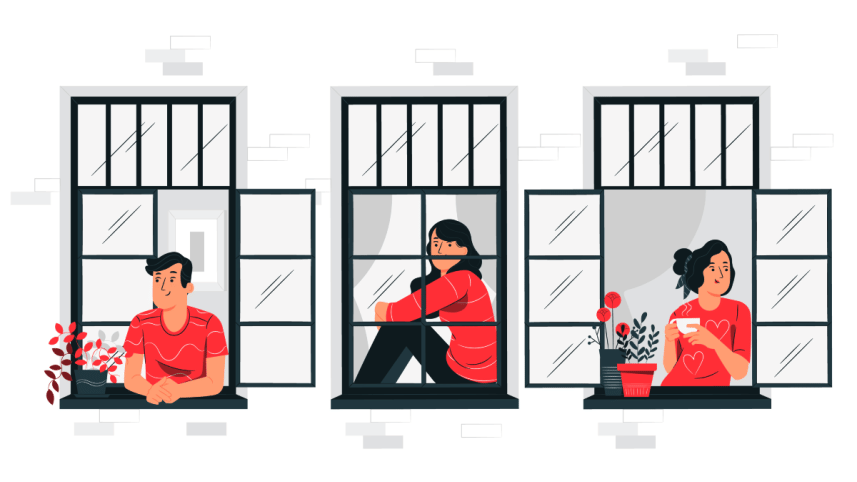Busting the Myth about Introverts Thriving in Lockdown

I got diagnosed with Covid-19 after spending approximately 16 months in lockdown alongside my family members, much like most of the nation. Having to further isolate myself from everyone else at home felt like moving into a smaller enclosed box contained within a larger enclosed box. At the beginning of lockdown, I was cut off from my friends. Now I was being cut off from my immediate family members as well.
"You stay cooped up in your room half the time anyway," came the words of what I imagine was supposed to be reassurance. Except the words came from a place of ignorance rather than comfort. The statement was little more than a generalisation commonly associated with cases of introversion. Online surveys conducted early in 2020 by Swiss psychologists Katja Schlegel and Danièle Gubler showed that extroverts and introverts exhibited similar feelings towards being cut off from all social contact.
Everyone simply assumed that introverts would somehow end up coping better than the rest when the lockdown was first announced.
A common myth regarding introverts is that we are indifferent towards the human race as a whole, despite being a part of it, and couldn't care less about the welfare of the human species. Perhaps the misconception stems from the needs of an introvert to keep to themselves due to social interactions being too emotionally draining. Solitude isn't necessarily a state of unhappiness at all times, especially not when it is acquired and discarded by one's personal choice.
Before the lockdown, I got to choose whether or not I'd spend my time indoors or outdoors. When a choice like that is taken out of your hands, solitude does indeed become miserable. I quickly realised that it wasn't just the social interactions I was being kept from, but also the company of my friends and cousins. I was no longer in the remoteness of my own design, I'd been cut off from the rest of the world. Even though platforms like Zoom and Google Meet safely brought people together in a virtual space, it was noticeable that introverts experienced a significant amount of difficulty adapting to such changes under short notice, unlike extroverts. Further research studies conducted by Maryann Wei from the University of Wollongong and Anahita Shokrkon from the University of Alberta revealed that extroverts have been able to fare slightly better in isolated environments compared to introverts. This could possibly be due to extroverts accommodating the changes in their surroundings well enough to establish new social connections, which can be a pretty daunting task for introverts who have a hard time interacting with people in general. It seems that introverts like me tend to carry the anxiety surrounding social interactions in real life onto virtual platforms as well.
Introversion is one of my many personality traits; it's not all that there is to me. My reserved nature and calm disposition do not equate to a misanthropic personality. Just because an introvert prefers their own company doesn't mean they don't value the presence of all their loved ones in their life. Contrary to popular belief, I, an introvert, have not been thriving in lockdown.
Rasha Jameel is your neighborhood feminist-apu-who-writes-big-essays. Remind her to also finish writing her bioinformatics research paper at rasha.jameel@outlook.com


 For all latest news, follow The Daily Star's Google News channel.
For all latest news, follow The Daily Star's Google News channel.
Comments